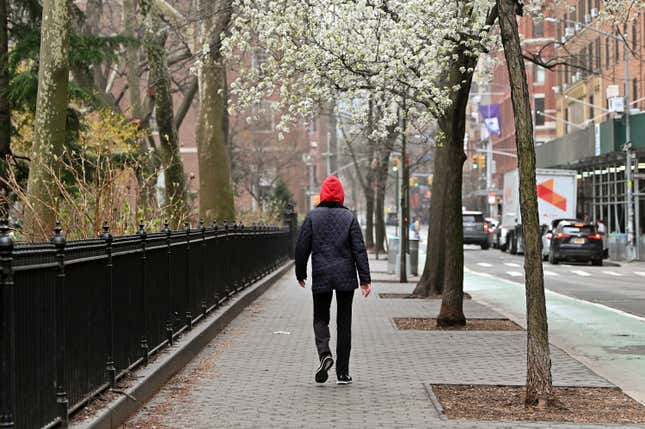
When faced with a life-altering and potentially life-ending crisis—a cancer diagnosis, for instance, or a terrorist attack—the performance of resilience can be an anesthetic; an anxiety-engulfing balm that allows us to make space for an effective counter-punch. Also, it just feels good to tell ourselves and others that “We got this” and “We’re built for this.”
But if there’s any message that the experts—the immunologists and geneticists and epidemiologists—are committed to communicating to us, it’s that COVID-19 is so deadly because our immune systems just haven’t seen this before. The only effective defense is to admit to ourselves, now, that “We don’t got this” and “We’re not built for this.” And then, well, change.
It’s been a year now since the release of What Doesn’t Kill You Makes You Blacker, and I’ve been fortunate to have a book that has legs. People are still inviting me places (and paying me) to talk about it. Only two weeks ago, I’d just returned from Nashville, where I attended the ACPA’s (American College Personnel Association) annual conference and delivered a talk to 400 college administrators about my book. Afterward, I signed over a hundred books, shook dozens of hands, and took several pictures. My round trip from Pittsburgh to Nashville also required connections in Washington, D.C. (outbound) and Charlotte (inbound).
This is the sort of quick and successful trip that had come to define my 2020. And I’m thinking about Nashville today in juxtaposition to last night, when what usually would have been a rote and mundane trip to the Rite-Aid down the street became an exercise in existential negotiation.
Do I really need to go? What am I risking by going? Is it silly to even ask myself these questions now? It’s just Rite-Aid, right?
The store itself felt like how it feels to grocery shop on Christmas, except with a latent menace and foreboding. Each of the workers had masks on, and each of four customers in the store regarded each other with the same wariness I’d treat a rottweiler on a leash walking towards me.
The violence of this sort of social, emotional, and economic whiplash—again, my Nashville trip was just two weeks ago—is something we just haven’t been able to process, and it’s fine to admit that. It’s fine to admit that you’re scared. It’s fine to admit that you’re possessed with anxiety and dread. It’s fine to admit that you just don’t know. It’s fine to admit that you were wrong a month or a week or a day or an hour ago to downplay this. And it’s not just fine to admit these things to yourself, it’s necessary. It’s paramount. It’s life-saving. It might feel counterintuitive and weak, like you’re laying down and giving up. But embracing that there’s so much unknown, and so much to be terrified of, allows pride, ego, insolence—each of which are legitimately life-threatening now—to dissipate and be replaced with vigilance, attentiveness, and dexterity.
Everything about what’s happening now is new, and to pretend otherwise—to act like you’re built for this and you got this—will literally kill people. Including, possibly, you too.

